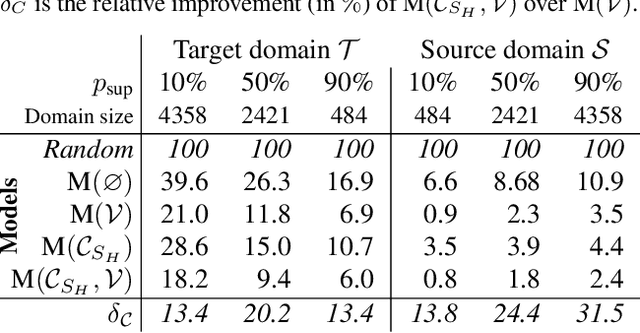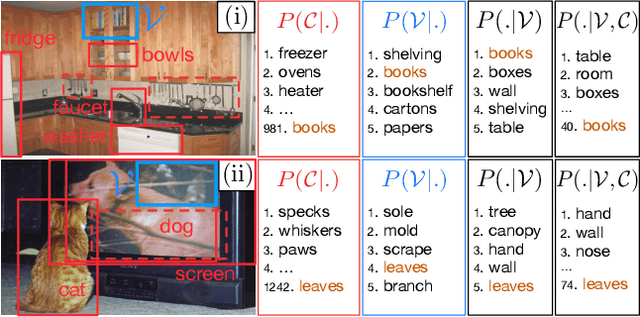Context-Aware Zero-Shot Learning for Object Recognition
Paper and Code
Apr 30, 2019

Zero-Shot Learning (ZSL) aims at classifying unlabeled objects by leveraging auxiliary knowledge, such as semantic representations. A limitation of previous approaches is that only intrinsic properties of objects, e.g. their visual appearance, are taken into account while their context, e.g. the surrounding objects in the image, is ignored. Following the intuitive principle that objects tend to be found in certain contexts but not others, we propose a new and challenging approach, context-aware ZSL, that leverages semantic representations in a new way to model the conditional likelihood of an object to appear in a given context. Finally, through extensive experiments conducted on Visual Genome, we show that contextual information can substantially improve the standard ZSL approach and is robust to unbalanced classes.
 Add to Chrome
Add to Chrome Add to Firefox
Add to Firefox Add to Edge
Add to Edge